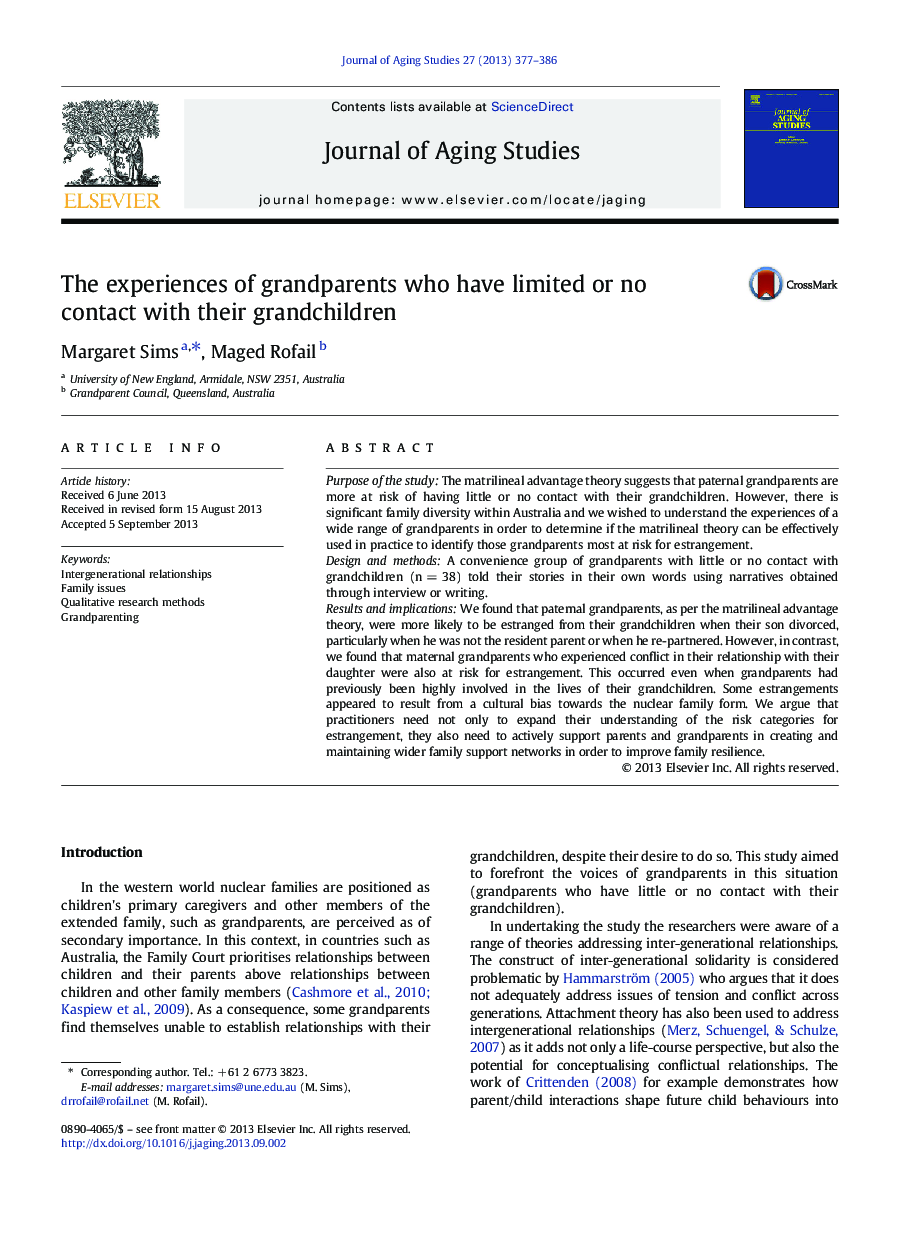| Article ID | Journal | Published Year | Pages | File Type |
|---|---|---|---|---|
| 10513178 | Journal of Aging Studies | 2013 | 10 Pages |
Abstract
We found that paternal grandparents, as per the matrilineal advantage theory, were more likely to be estranged from their grandchildren when their son divorced, particularly when he was not the resident parent or when he re-partnered. However, in contrast, we found that maternal grandparents who experienced conflict in their relationship with their daughter were also at risk for estrangement. This occurred even when grandparents had previously been highly involved in the lives of their grandchildren. Some estrangements appeared to result from a cultural bias towards the nuclear family form. We argue that practitioners need not only to expand their understanding of the risk categories for estrangement, they also need to actively support parents and grandparents in creating and maintaining wider family support networks in order to improve family resilience.
Related Topics
Health Sciences
Medicine and Dentistry
Geriatrics and Gerontology
Authors
Margaret Sims, Maged Rofail,
